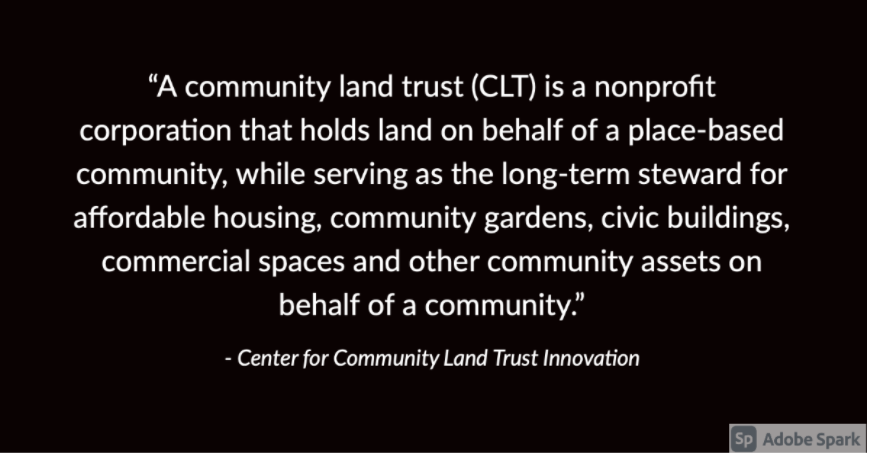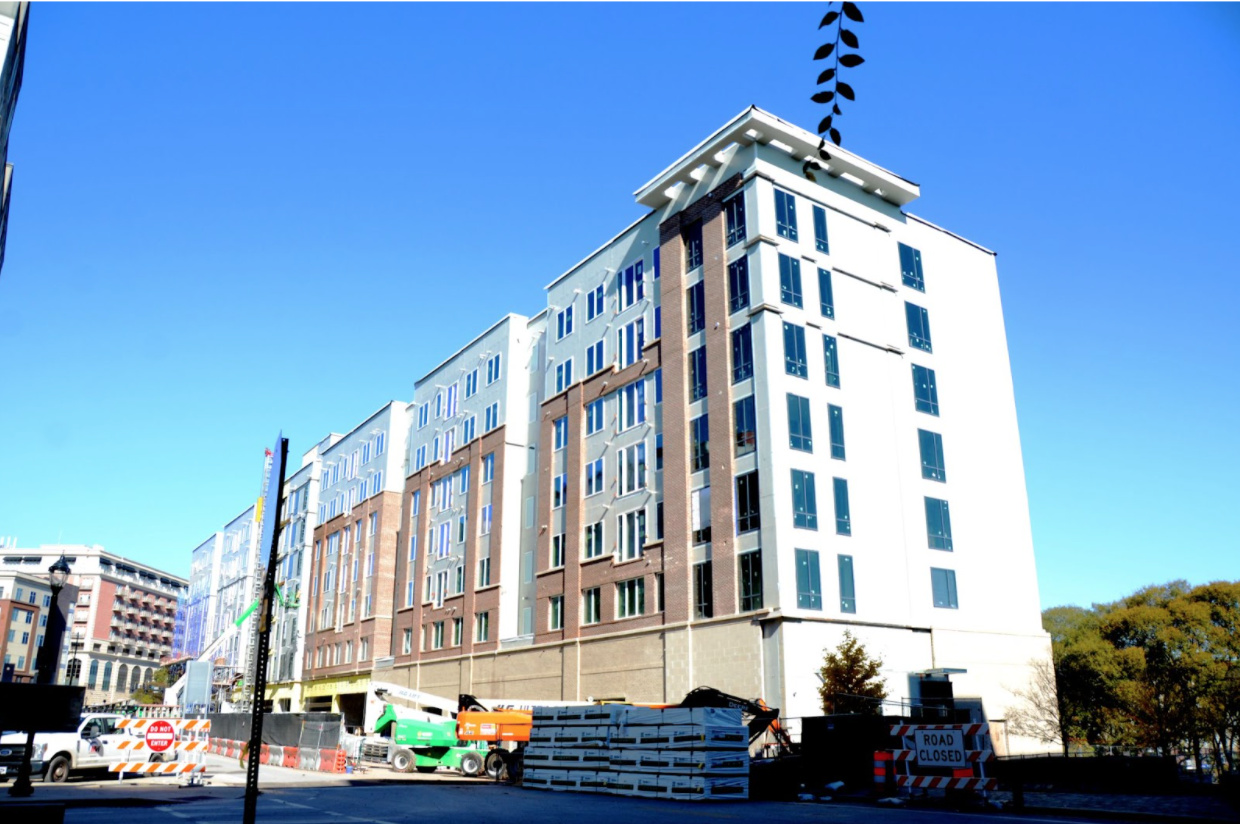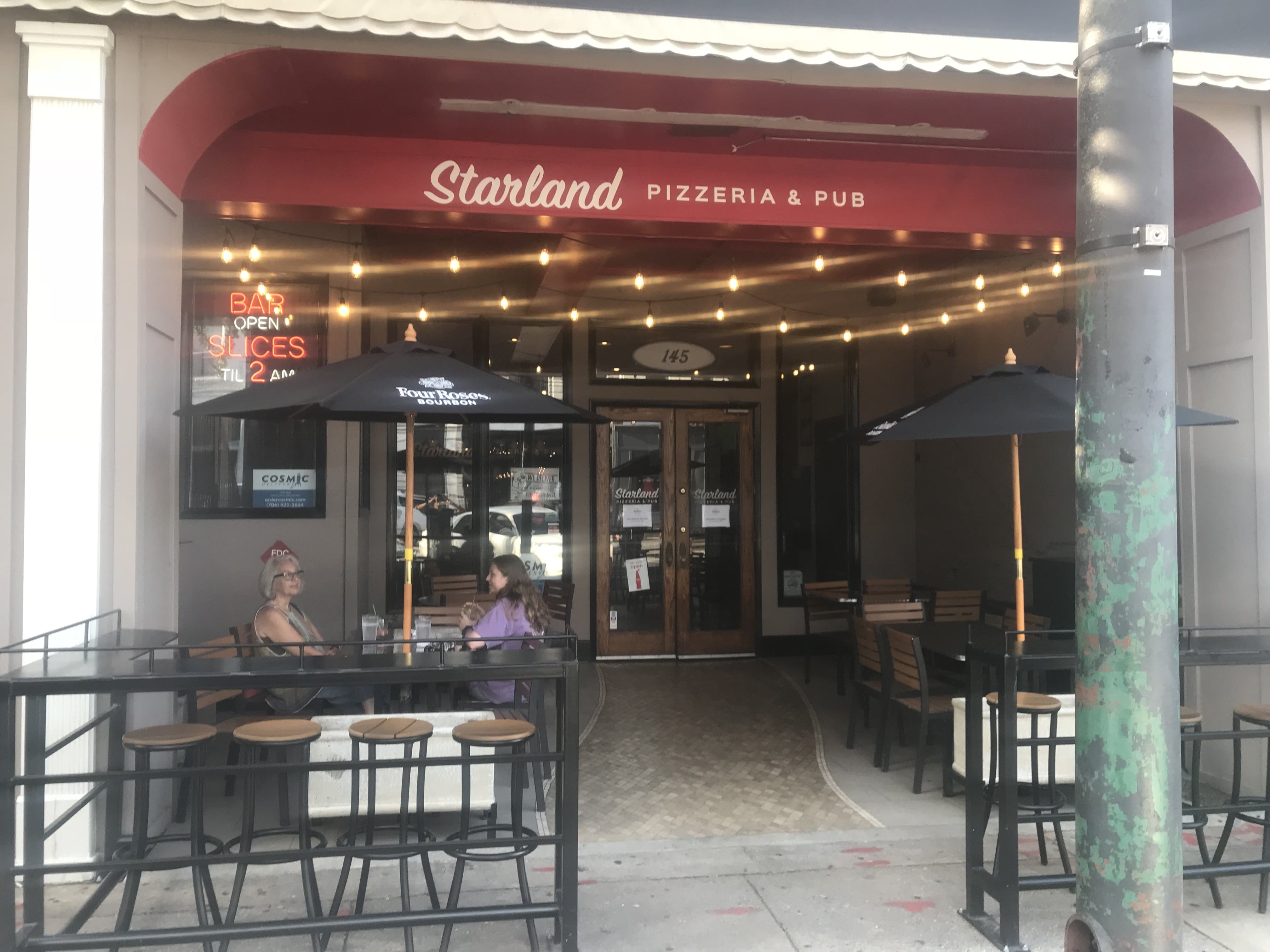At 145 Cannon Drive in Athens, a sky blue house sits empty, awaiting a new family. In Athens, the average home value is $249,947, but this three-bedroom, two-bath house is priced at $96,000.
“You hear about the housing crisis, and it’s not a crisis for everyone, so maybe there’s not that sense of emergency,” said Cary Ritzler, affordable housing coordinator of Athens Land Trust (ALT). “But for people who are in an unstable housing situation or they don’t have enough money for their rent or they’re facing eviction, it’s a daily crisis.”
Why It’s Newsworthy: High demand and investments in student housing make housing costs more expensive in Athens. Increasing prices affect both low- and middle-income residents.ALT builds houses and renovates old houses to operate a community land trust, Ritzler said. The goal is to combine federal subsidies and a land trust model to sell affordable housing to lower income homebuyers. The hope is that this housing will be permanent, preventing lower income residents from staying stuck in the cycle of increasing rent in Athens.

“Our homeowner program opens up a door,” Ritzler said.
Under the land trust model, the homebuyer owns the house, but the land trust maintains control of the land. The land trust leases the land to the homeowner with a 99-year renewable lease. This guarantees that “ALT houses will never turn into rental houses with absentee landlords and expensive rents,” according to ALT’s website.
“So it essentially stays affordable in the in the community for forever, as long as it’s in the community land trust,” Ritzler said.
ALT also has rental options available for families with income less than 50% the median income who aren’t ready to purchase a home.
Cutting Into Other Needs
For housing to be affordable, it should cost no more than 30% of an occupant’s gross income, according to The Department of Housing and Urban Development (HUD).
“One of the things about housing is that you have to have it,” said Jermaine Durham, a University of Georgia assistant professor of housing and community development and the director of the Georgia Initiative for Community Housing. “If you’re spending greater than 30% of your income [on housing], that’s going to cut into a lot of the other really important needs that you have.”
One measurement used by HUD to regulate housing costs is Fair Market Rent (FMR). It represents the cost to rent a moderately-priced unit in a given housing market. The Athens FMR is high compared to the state average, as shown by the data below:
“Housing problems are extremely complex,” Durham said. “The same two cities can have the same housing problem rooted in two totally different fundamental problems.”
Evening the Score with Athens Land Trust
Because the cost of housing is high in Athens, ALT receives funding from HUD to purchase and renovate homes that will then be sold within the land trust.
When an incoming homeowner buys at ALT home, they pay less than market value. If the homeowner later decides to sell the house, ALT buys it back or finds another potential homebuyer to purchase the home at an affordable price.
“They are able to build equity and sell the home for more than they bought it, but with some restrictions as to prevent speculative resale and retaining affordability,” said Michael Roberts, ALT’s director of impact and strategic initiatives, via email.
Instead of spending money on increasing rent, home ownership gives participants a tangible asset.
“This is intended to be an on-ramp to home equity and a tool for community stewardship and neighborhood stabilization,” Roberts said. ”Typically our homebuyers would not otherwise be able to achieve homeownership in Athens, especially as gentrification and cost of living accelerates.”
‘Far Outweighed by the Need’
Since 2002, ALT has built or renovated 53 single family homes, according to ALT’s website. But the demand for ALT far exceeds what ALT is able to supply.
“Currently, we have an extensive waiting list as there is far more demand than availability of affordable housing, and our pace of development is far outweighed by the need in Athens,” Roberts said.
ALT experiences some pushback, Roberts said, but it usually stems from a misunderstanding of the land trust model.
“Usually, when we are able to spend time explaining the model or connecting interested parties with current homeowners and stakeholders, the pushback shifts to curiosity, engagement, and even at times support for our organization and mission,” Roberts said.
Burdens Felt Across Georgia
Changes in real estate markets and increases in luxury housing aren’t unique to Athens.
About an hour southeast of Athens, the Atlanta Land Trust is combating increased housing costs affected by the extension of the Atlanta Beltline.
In Atlanta’s metropolitan area, 33 affordable housing units exist per 100 tenants with extremely low income, according to a 2018 report from the Federal Reserve Bank of Atlanta. In Athens, 18 affordable housing exist per 100 tenants with extremely low income. Sixty-nine percent of Atlanta’s residents have extremely low income, while 74% of Athens residents do.
Atlanta’s land trust currently has 20 homes in its portfolio. As 2022 begins, the land trust will begin construction for three projects with 125 units in total.
Regardless of where they live, communities lacking affordable housing face a similar challenge: helping residents escape the trend of increasing housing costs. Land trusts are one solution working to disrupt the cycle.
“They want to have a house, they want to have a yard, they want to purchase a house instead of renting their whole life,” said Ritzler, “And really, because of the way the market is, and because of the way incomes are in Athens, it’s just inaccessible without assistance.”
Allyn Haynes, Ashley Galanti, Michael Pannell and Caroline Odom are a team of seniors majoring in journalism at the College of Journalism and Mass Communication.









Show Comments (1)